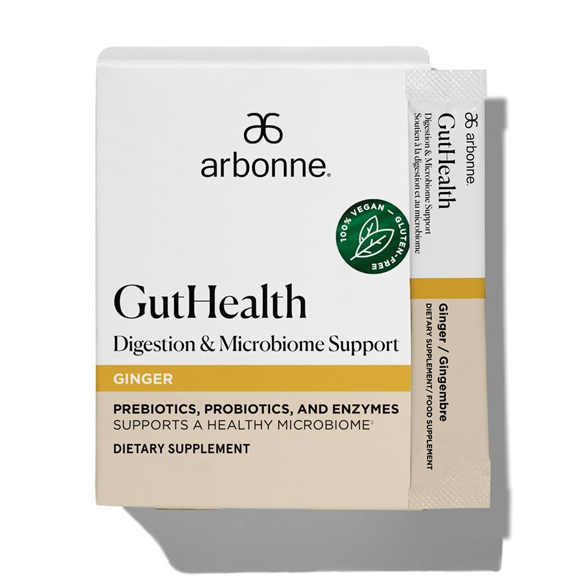Discover the Key to Food Digestion and Resistance With Digestive Tract Health Support

Comprehending Gut Wellness
Recognizing intestine health is vital for overall health, as it plays a considerable duty in digestion, immunity, and even mental health and wellness. The gut, comprising the gastrointestinal tract, is accountable for breaking down food, absorbing nutrients, and expelling waste. A balanced intestine atmosphere guarantees reliable digestion, allowing the body to make use of nutrients efficiently.
Moreover, digestive tract wellness dramatically affects the immune system. The digestive tract houses a considerable section of the body's immune cells, and a healthy intestine can help fend off pathogens and decrease swelling. Disruptions in digestive tract health can cause an overactive immune reaction, possibly adding to autoimmune disorders and allergic reactions.
In addition, the digestive tract is commonly described as the "2nd mind" because of the gut-brain axis, a complex interaction network connecting the mind and the gut. This connection influences mood, cognition, and psychological wellness. Issues such as dysbiosis, identified by an imbalance in intestine microorganisms, have actually been connected with psychological health conditions, consisting of anxiety and anxiety.
The Intestine Microbiome Explained

The intestine microbiome, a diverse area of microorganisms staying in the gastrointestinal tract, plays an essential duty in maintaining digestion wellness and overall wellness. Making up trillions of germs, viruses, fungis, and various other microorganisms, this facility ecosystem aids in the food digestion of food, the synthesis of important nutrients, and the law of metabolic procedures.
Each person's digestive tract microbiome is unique, affected by factors such as diet plan, way of life, genetics, and ecological exposures. A well balanced microbiome sustains ideal food digestion by breaking down complex carbs, producing short-chain fatty acids, and promoting the absorption of nutrients. Alternatively, an inequality, often described as dysbiosis, can result in gastrointestinal disorders, including short-tempered digestive tract syndrome (IBS) and inflammatory digestive tract illness (IBD)
Research has actually demonstrated that a varied microbiome is related to much better wellness outcomes, underscoring the importance of dietary options in nurturing these microorganisms. Foods abundant in fiber, probiotics, and prebiotics, such as fruits, vegetables, and fermented items, can advertise a healthy and balanced microbiome. Understanding the digestive tract microbiome is important for developing targeted interventions targeted at improving gastrointestinal wellness and preventing stomach conditions.

Connection In Between Digestion and Resistance
A durable link exists in between digestion and immunity, highlighting the crucial duty of the gut in preserving total health. The intestinal system is home to trillions of bacteria that form the additional resources intestine microbiome, which dramatically influences both digestive procedures and immune reactions. This facility ecosystem aids in damaging down food, absorbing nutrients, and offering crucial metabolites that support immune feature.
When digestion is efficient, the gut obstacle stays intact, avoiding dangerous pathogens from going into the blood stream (gut health supplement). Alternatively, inadequate food digestion can cause an inequality in the microbiome, causing dysbiosis, which has actually been connected to various health and wellness problems, including autoimmune diseases and inflammatory conditions. Roughly 70% of the immune system resides in the gut-associated lymphoid cells (GALT), which connects carefully with the gut microbiome. This interaction guarantees that the immune system can effectively compare helpful and hazardous substances.
Tips for Sustaining Intestine Health And Wellness
Sustaining digestive tract health and wellness is essential for preserving both digestion efficiency and a well-functioning body immune system. To foster ideal intestine health, consider integrating a number of functional strategies right into your day-to-day regimen.
First, focus on hydration. Drinking appropriate water sustains digestion and assists preserve the mucosal cellular lining of the intestinal tracts. Furthermore, regular exercise can boost intestine mobility and advertise a diverse microbiome.
Conscious eating practices are likewise crucial. Eating food thoroughly and eating slowly can help food digestion and stop over-eating, which may emphasize the gut. Additionally, handling stress and anxiety via methods such as meditation, yoga exercise, or deep-breathing workouts can positively affect intestine health and wellness, as tension is recognized to interfere with digestive system procedures.
Including prebiotics and probiotics right into your routine is an additional efficient method. While certain foods will be discussed later on, understanding the relevance of these parts is important. Prebiotics function as food for valuable digestive tract germs, while probiotics present real-time valuable microorganisms.
Last but not least, avoid extreme use prescription antibiotics, as they can interrupt the equilibrium of digestive tract plants. By following these pointers, you can considerably add to the maintenance of a healthy digestive tract, which is vital for total health and wellness and vitality.
Foods That Promote Intestine Wellness

Fermented foods, such as yogurt, sauerkraut, kefir, and kimchi, are abundant in probiotics, which are beneficial germs that sustain gut flora and enhance food digestion. These foods can aid recover equilibrium in the digestive tract, especially after antibiotic usage or digestion disturbances.
Along with fermented alternatives, prebiotic foods, such as garlic, onions, asparagus, and bananas, act as nourishment for these probiotics, promoting their growth and task. These soluble fibers sustain intestine mobility and can alleviate concerns like constipation.
Additionally, incorporating high-fiber foods, consisting of whole grains, fruits, legumes, sites and vegetables, is essential for preserving a healthy gut. Fiber help in regular bowel activities and helps try this out prevent digestion problems.
Finally, omega-3 fatty acids found in fatty fish, flaxseeds, and walnuts have anti-inflammatory buildings that can further support gut health. Emphasizing these foods in your diet plan can result in a durable gastrointestinal system and improved immune feature.
Verdict
In verdict, focusing on gut health is essential for optimizing digestion and improving resistance. A well balanced intestine microbiome, affected by dietary selections and way of living variables, plays an important duty in nutrient absorption and inflammation decrease.
Understanding gut wellness is vital for total well-being, as it plays a significant role in digestion, resistance, and even mental health. The intestine houses a substantial portion of the body's immune cells, and a healthy and balanced digestive tract can aid fend off pathogens and reduce inflammation.Additionally, the gut is commonly referred to as the "2nd mind" due to the gut-brain axis, a complicated interaction network connecting the brain and the gut.A durable connection exists in between food digestion and resistance, highlighting the essential function of the intestine in maintaining general health and wellness.In conclusion, focusing on gut wellness is essential for enhancing digestion and boosting resistance.
Comments on “Why a Gut Health Supplement Should Be Part of Your Daily Routine”